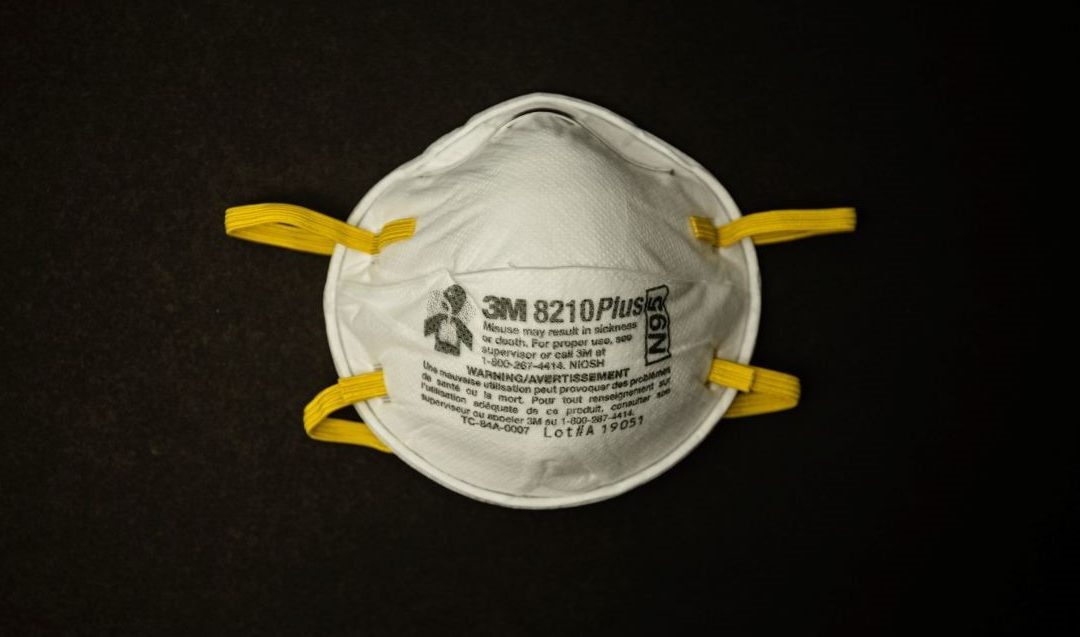Scarcity, regulatory roadblocks, innovative solutions and 5 more links worth your time
Shortages, N95s, and market failures

Meat shortages, toilet paper rationing, and not being able to get tested for a common illness: if I’d listed those things six months ago and asked you to guess the place I was describing, I bet you would not have replied, “My neighborhood.”
Maybe you would have had a few minor grievances about something being back-ordered for a week on Amazon (remember when that seemed like an inconvenience?). I know my kids were pretty concerned about the scarcity of concert tickets for the upcoming BTS tour. But if you had told me that my local grocery store would have no chicken (it doesn’t), I would have laughed at you. That doesn’t happen here, I would have said.
Today? There are lots of examples of demands that aren’t being supplied. Does that mean markets aren’t working?
Golden tickets
Recently, we’ve started fighting about whether we have to wear masks or not, but a few weeks ago we were actually fighting about how to get them. The N95 respirator became one of the symbols of the COVID-19 pandemic. Severe shortages of these masks and other personal protective equipment (PPE) dominated headlines and, for many, illustrated our lack of preparation for the crisis. Now, as businesses re-open and require customers to wear masks, there is renewed concern over shortages.
The supply chain seems broken at multiple points: a failure to stockpile, a failure to import (or to stop exports), and several production failures. When boxes of N95 masks were discovered in a company’s basement, it felt like first responders found a golden ticket in a Wonka bar.
Rather than blaming markets for these shortages, we also should consider complex regulations that slow down manufacturing and distribution. I’m worried about the international tensions the crisis is likely to cause in the future, but I’m also thinking about the difficult trade relationships that preceded the pandemic and impacted available supply.
DIY
Sometimes, messy global issues can have local answers that prove to be “the next best thing.”
Where there is a shortage, there will soon be entrepreneurs who offer alternatives. In the case of N95 masks, individuals across the country are collaborating to develop creative ways to increase supply. Those who know how to sew are now sewing to save lives, producing masks for healthcare workers, neighbors, and strangers. Crowdsourcing initiatives like the Helpful Engineering Slack channel apply the skills and resources of more than 13,000 engineers to testing out new ideas and prototypes for tools to protect us during this outbreak, or the next.
No shortage of creativity
Human ingenuity offers remarkable capacity for problem-solving. The origin story of the N95 respirator is itself a great illustration of our ability to meet demand in difficult times. The design “evolved over hundreds of years in response to multiple crises,” and there is every reason to believe the current situation will add further to that development.
A lack of protective equipment (or meat or household goods) is no laughing matter, and I’ve been reminded in the past few days that I’m very fortunate that this is the first time in my life I’ve seen empty meat aisles at the grocery store. It’s hard not to be anxious, but there are good reasons to be hopeful: individuals are responding to scarcity with creativity and innovative problem-solving (see some great examples in our links below).
5 more links worth your time
-
- [Online Event] Civil Squared Live: Reopening the Economy While Preserving Public Health – a Zoom conversation with policy expert Avik Roy – Join us live online this Thursday, May 14th at 7:30 pm (EDT) to talk with Avik Roy, health policy expert and President of the Foundation for Research on Equal Opportunity about his proposal to get businesses up and running safely, even during a pandemic.
- N95 Mask Shortage Brings Inventor Out Of Retirement In Search Of Safe Reuse Method, NPR – The engineer behind the N95 mask design we use today is working with volunteer researchers to improve his invention.
- Open Innovation in Medical Technology Will Save Lives, Electronic Frontier Foundation – Collaboration and open licensing in research could potentially expedite production and use of new tools against COVID-19.
- A secret deal and a visit from the FBI – a hospital’s strange quest for coronavirus masks, Los Angeles Times – A Massachusetts hospital’s pursuit of protective equipment emphasizes the systemic challenges as well as the power of individual creativity.
- This 12-year-old invented an ingenious solution to one of the biggest problems with masks, Fast Company – A Canadian boy with a 3D printer designed and produced ear guards for healthcare workers suffering from ear pain during long shifts in N95 masks.
p.s. If you’ve got a political, ideological, or philosophical issue you’ve been considering, email me at jennifer@civilsquared.org and I’ll work with my team to put together a list of articles, issues, and interesting points of view to share with you and others.